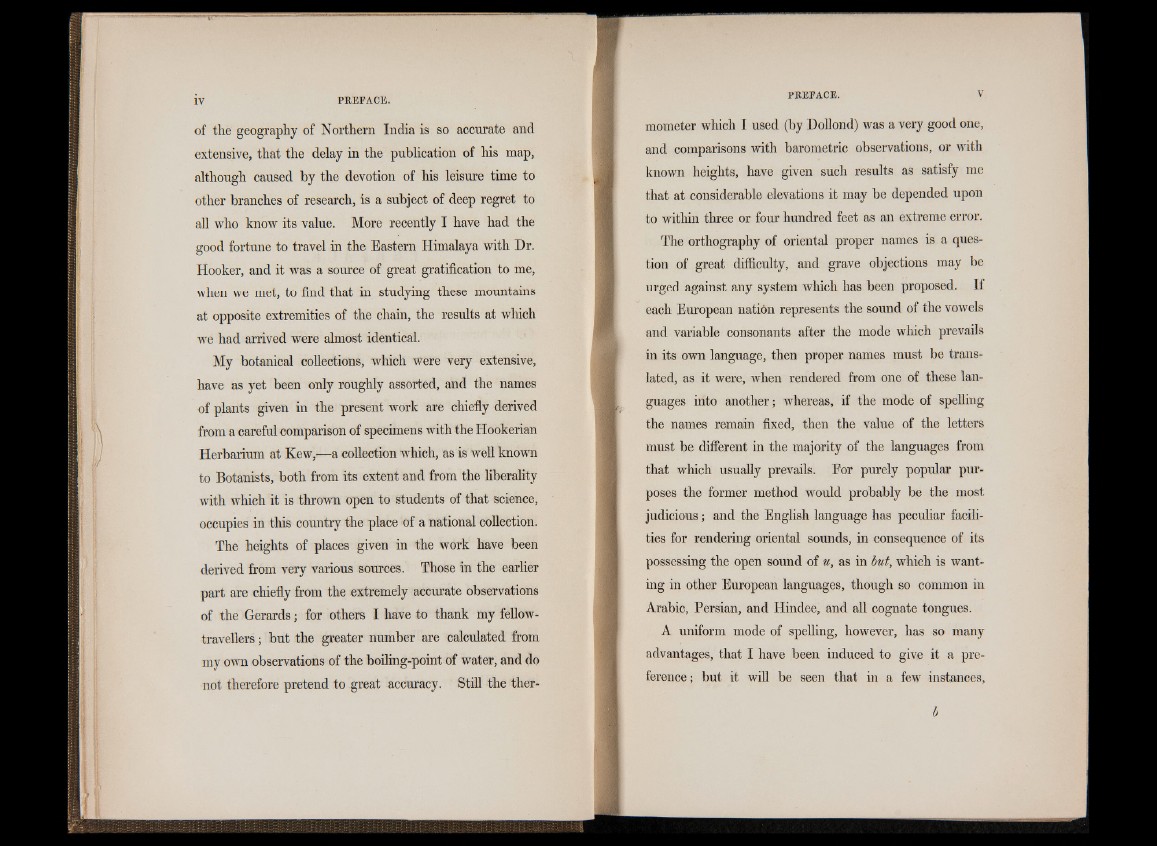
iv PREFACE.
of the geography of Northern India is so accurate and
extensive, that the delay in the publication of his map,
although caused by the devotion of his leisure time to
other branches of research, is a subject of deep regret to
all who know its value. More recently I have had the
good fortune to travel in the Eastern Himalaya with Dr.
Hooker, and it was a source of great gratification to me,
when we met, to find that in studying these mountains
at opposite extremities of the chain, the results at which
we had arrived were almost identical.
My botanical collections, which were very extensive,
have as yet been only roughly assorted, and the names
of plants given in the present work are chiefly derived
from a careful comparison of specimens with the Hookerian
Herbarium at Kew,—a collection which, as is well known
to Botanists, both from its extent and from the liberality
with which it is thrown open to students of that science,
occupies in this country the place of a national collection.
The heights of places given in the work have been
derived from very various sources. Those in the earlier
part are chiefly from the extremely accurate observations
of the Gerards; for others I have to thank my fellow-
travellers ; but the greater number are calculated from
my own observations of the boiling-point of water, and do
not therefore pretend to great accuracy. Still the therp
r e f a c e . v
mometer which I used (by Dollond) was a very good one,
and comparisons with barometric observations, or with
known heights, have given such results as satisfy me
that at considerable elevations it may be depended upon
to within three or four hundred feet as an extreme error.
The orthography of oriental proper names is a question
of great difficulty, and grave objections may be
urged against any system which has been proposed. If
each European nati6n represents the sound of the vowels
and variable consonants after the mode which prevails
in its own language, then proper names must be translated,
as it were, when rendered from one of these languages
into another; whereas, if the mode of spelling
the names remain fixed, then the value of the letters
must be different in the majority of the languages from
that which usually prevails. For purely popular purposes
the former method would probably be the most
judicious; and the English language has peculiar facilities
for rendering oriental sounds, in consequence of its
possessing the open sound of u, as in but, which is wanting
in other European languages, though so common in
Arabic, Persian, and Hindee, and all cognate tongues.
A uniform mode of spelling, however, has so many
advantages, that I have been induced to give it a preference
; but it will be seen that in a few instances,
b